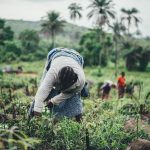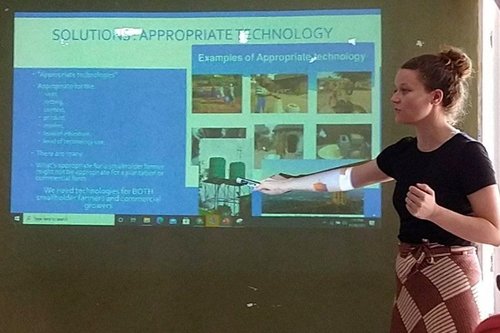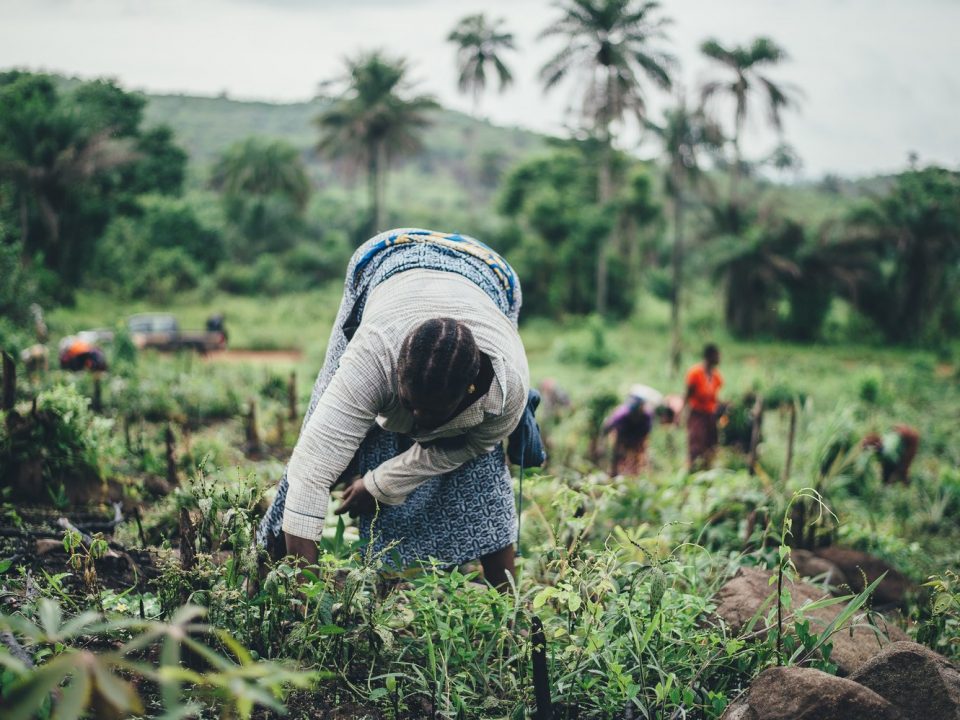
Four Private Sector Models For Agronomic Advisory Within Liberia’s Vegetables Market
January 7, 2024
Recommendations for Liberia’s Cocoa Sector Governance
January 7, 2024Agriculture Extension and Advisory in Liberia
An option for private sector-led training in the vegetables sector
By Kelvin N. Doesieh
Strong agricultural education and advisory services are critical to the growth of Liberia’s agricultural industry and the performance of its farmers. Farmers’ limited access to adequate extension and advisory services adversely affects the quality and productivity of their output and, by extension, their income.
Liberia established a vision for decentralized, demand-driven public agricultural extension systems in its National Advisory and Extension Services Policy (2012). However, as with many countries, Liberia’s extension services have not yet achieved this vision. They are underfunded and staffed by an aging and limited workforce that lacks the tools to do their jobs well (e.g., transport to rural farms). Donor-funded initiatives and not-for-profits have risen to fill this void. However, most of these activities cease operations when funding terminates. Investment in agricultural training institutions that support extension worker training and lead research and development, coupled with the provision of adequate incentives to these extension personnel through budgetary allocation could help to improve public sector extension and advisory services.
Models that leverage the private sector also offer a compelling opportunity to integrate agricultural advisory that can reach a larger number of farmers sustainably. However, this needs to be supported by a strong government policy that recognizes the role of private extension service providers and ensures the government does not crowd out the private service providers. This approach would necessarily complement, rather than supplant, public and donor-funded activities in Liberia. Private extension service is provided through fees that are borne by individuals, groups or through farmers organizations and private organizations. The opportunity for private extension services is usually more acute with respect to high value crops, where the market requires better quality commodities and offers a financial incentive to achieve this. This enables companies to offer extension to their networks and some farmers to pay for this advice directly.
Private sector-led advisory can take many shapes. With our agribusiness partners, GROW Liberia has piloted a number of private sector extension approaches in the last few years.
One model that shows promise? Leveraging agro-dealers to offer advisory to farmer customers through direct engagements and networks of sales agents. Their skill and advice attract new customers and helps current customers to improve their yields and grow their farms.
GROW Liberia established an Agro-Dealer Development Programme which focused on professionalizing agro-dealer partners with better business and financial management (an important underpinning for any business keen to grow). It also offered good agricultural practices training, upskilling agro-dealers and their sales agents. Practical modules included introductory training for seed selection, land preparation, nursery management, agro-chemical and fertilizer application, and disease identification and management.
This training enabled agro-dealers to add agronomic support to their business offering, targeting male and female farmers. It also positioned sales agents to expand outreach, drawing rural farmers as customers. The sales agents were also trained on similar modules like the agro-dealers. These agents train farmers in remote communities and facilitate sales on behalf of the agro-dealers in exchange for commission payment and other incentives, including transportation allowance in some instances.
These adaptations, led to the following results at the end of March 2021:
- Network of 28 professional agro-dealers with stronger business and financial management and increased agronomic capacity, ultimately resulting in better support and service for farmers. Agro-dealers report investing in shop expansion, new market days, radio adverts and other promotional activities to increase clients on their own.
- Over 100 active sales agents networked to 15 agro-dealers, extending sales and advice to increasingly rural communities. Some agro-dealers are also expanding their sales agent model, growing the number of sales agents in their workforce, and investing to build their capabilities.
- In total, these businesses reported more than USD $568,000 in sales in 2020 and serviced more than 20,000 vegetable farming households with better agro-inputs and information on their use.
A profit motive increases the likelihood of continued advisory and outreach by agro-dealers and sales agents. However, in the current market, there are few opportunities to upgrade and adapt training to respond to emerging issues and trends. Two emerging opportunities include:
- TJAL, an agro-inputs distributor, also provides quality inputs and agricultural extension and advisory to farmers through a network of sub-distributors within Bong and Nimba Counties. The company promotes new products through demonstration plots in collaboration with sub-distributors, recognizing that inappropriate use of inputs results in poor yields which result in product and market distrust. Sub-distributors benefit from a specialized payment, credit and distribution system and a reward system for high performing sub-distributors for selling TJAL products and providing extension and advice to their network of farmers.
- LICC’s Agriculture Research Center recently launched a short course with the ambition to service agro-dealers, sales agents and farmers. Given the importance of agriculture training institutions in extension training and development, GROW and LICC collaborated to pilot test a commercial agricultural short course delivery for agricultural stakeholders. LICC’s Agriculture Research Center (ARC) has become an important regional institution of information and resources for the surrounding farming communities in Nimba County. The campus has an extensive demonstration farm with both plant and animal production that hosts over 1,000 visitors annually, while the campus laboratory provides soil testing and other services to visiting farmers.
The school currently offers a BSC. degree in agriculture as well as short agricultural courses for non-degree students, especially farmers and agro-inputs dealers for an affordable fee. The short course program runs on Fridays and Saturdays for a total of eight weeks. The intention is to create a source for practical extension training and advisory and provision of extension workers.
GROW Liberia’s work to build out private sector-led solutions through agro-dealer and sales agent advisory services, distributor-led product promotions and training, and practical short courses via a local educational institution are just some ways that the private sector can complement public and donor-funded initiatives.
About GROW Liberia
GROW is an agribusiness and investment advisory agency that partners with businesses, investors, associations and government agencies to accelerate inclusive economic returns within high-growth industries in Liberia.



